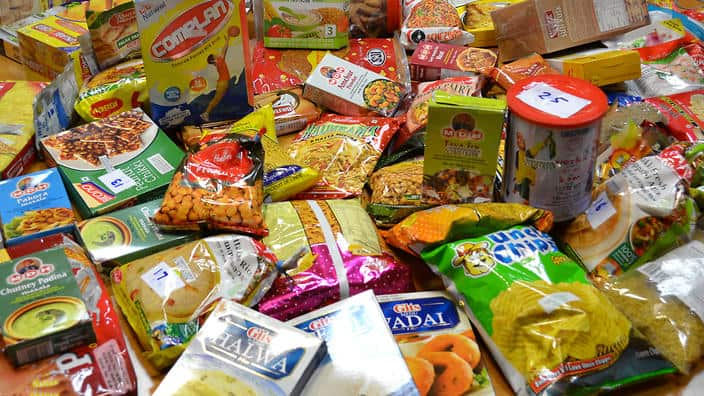"There are holes in our biosecurity system that you could drive shipping containers through," Nick Xenophon tells SBS Radio followingthat revealed how dangerous and banned foods were being imported and sold in Australian supermarkets.
The report prompted further government investigation, however the Department of Agriculture and Water Resources (DAWR) has declined to provide details of the “investigative work," saying the investigation is ongoing.
"The Department of Agriculture and Water Resources has been looking into claims made by SBS in 2016," said a spokesperson.
The SBS investigation also .
A whistle-blower had told SBS that the contraband was brought by hiding it in food containers.

Kamini tablets Source: SBS
"The import pathway suggested by the SBS's informant is of concern"
The spokesperson said the investigations team of DAWR is reviewing these allegations.
"This department does not have a role in the regulation or import of opiates or tobacco, but the import pathway suggested by the SBS's informant is of concern," the spokesperson said.
The Australian Border Force confirmed to SBS it detected importations of Kamini tablets at Australia’s borders and said it refers the cases of drug importation to the Australian Federal Police.
While the AFP said any harmful substance making its way into Australia is always concerning, a spokesperson did not specify whether the Kamini importations are being investigated specifically.
“The Australian Federal Police works closely with Commonwealth and state/Territory law enforcement agencies to detect, seize and prosecute those who import dangerous, illicit drugs into Australia,” a spokesperson for the AFP told SBS Punjabi.
"There are holes in our biosecurity system that you could drive shipping containers through," - Nick Xenophon
"This is further proof of deep systemic problems with Australian Biosecurity," Senator Xenophon tells SBS Punjabi.
"This needs to involve a whole of government approach - the Department of Agriculture, Department of Health as well as Border Security."
"Clearly these issues haven’t been taken seriously enough. We should’ve learnt from the past."
"It is unacceptable that this level of laxness is still happening."
"Not only does this show that we are lax when it comes to our borders, and to the food and medicines we consume, but it also shows a disregard to the potential health impact and that’s unacceptable," says Xenophon.

A selection of products purchased by SBS Punjabi Radio, many of which were then sent for testing by NMI (SBS) Source: SBS Punjabi
"Two years after their failed response to the import of frozen berries contaminated with Hepatitis A, the Government appears to have dropped the ball again."
The Australian Greens spokesperson for Agriculture and Rural Affairs Senator Janet Rice says the government has failed to protect Australian consumers from unsafe imported goods.
"This is yet another example of this Government’s multiple failures at protecting Australian consumers and communities from imported goods that breach our food safety standards," Senator Rice tells SBS Punjabi.
"Two years after their failed response to the import of frozen berries contaminated with Hepatitis A, the Government appears to have dropped the ball again."
SBS investigations revealed cancer-causing chewing tobacco and Kamini Tablets that contain up to five per cent opium, were being sold over the counter in many south Asian grocery shops in Melbourne. The investigation also revealed many imported Indian foods being sold in Australia did not meet the standards mandated by the Food Standard Australia and New Zealand. and heavy metals which health experts say can cause serious long-term health effects, if consumed regularly.
The investigation also revealed many imported Indian foods being sold in Australia did not meet the standards mandated by the Food Standard Australia and New Zealand. and heavy metals which health experts say can cause serious long-term health effects, if consumed regularly.

Kamini tablets Source: SBS Punjabi
While samples of four food items tested, , clearly breached FSANZ standards, those products continue to be sold in supermarkets.
Ghee - a clarified butter sold at a supermarket was found to contain traces of DDT.
Several members of the community also sent SBS photos of mouldy and putrid food being sold at various stores and supermarkets around Australia, with use-by dates tampered with.
Though it is the responsibility of the DAWR to ensure that the imported foods meet Australia’s food safety requirements, the department says it’s a shared responsibility and "we rely on importers doing the right thing while the operate their business."
Whilst SBS investigated only looked at a limited number of food items imported from India, similar anomalies are likely to be prevalent in foods imported from other countries, should a thorough investigation take place.
SBS Radio contacted the Federal Health Minister Greg Hunt for a comment but did not receive a response.





